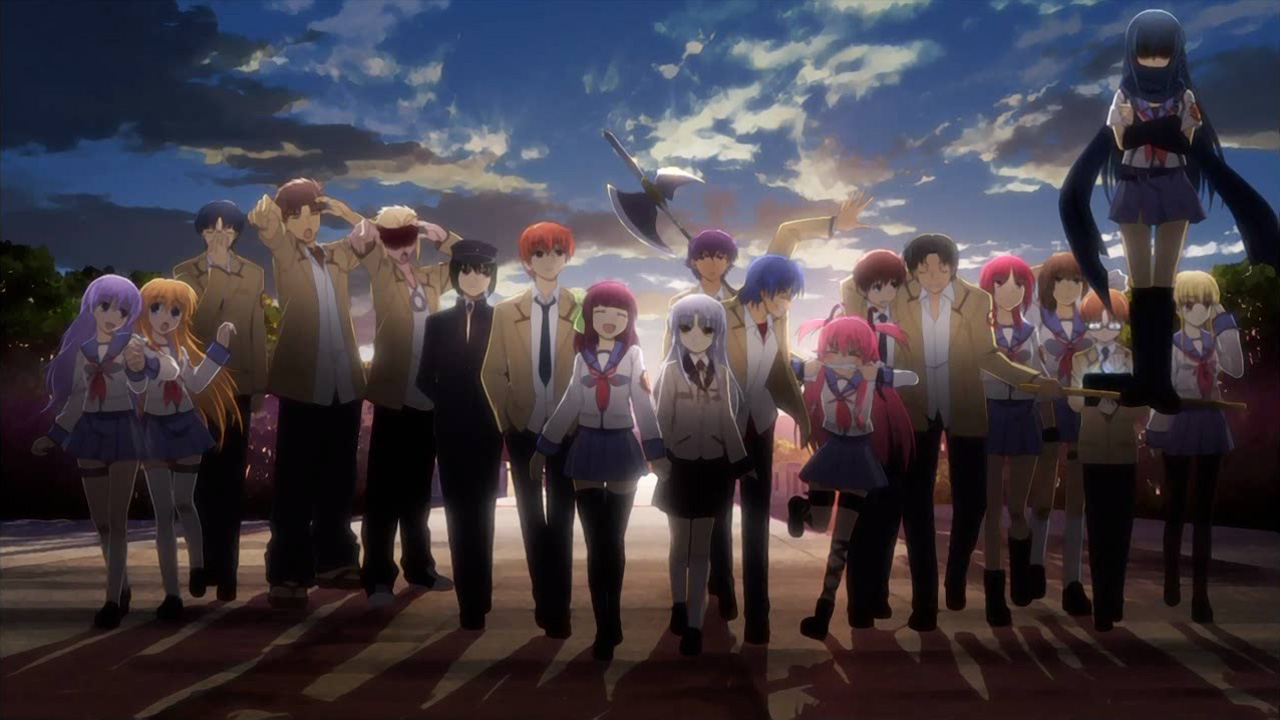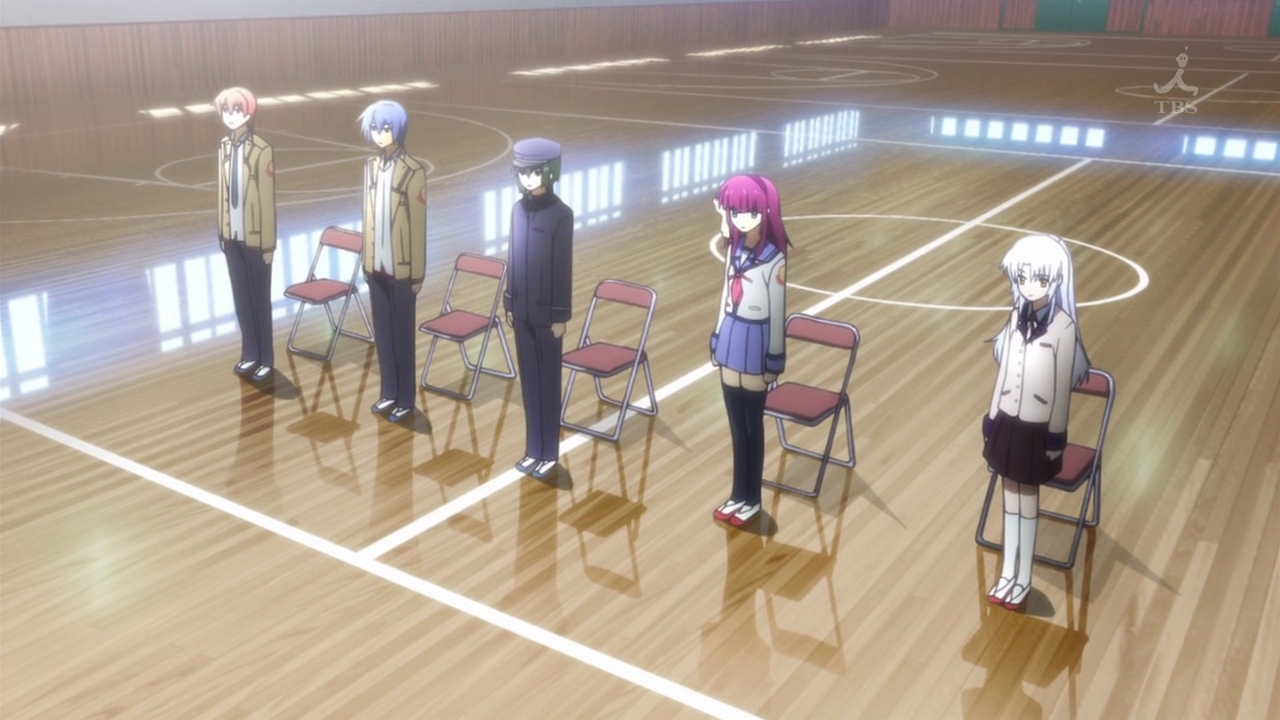Angel Beats is a 2010 anime produced by P.A. Works. Its story is one of sadness, filled with themes like death and regret. The anime follows a group of teenagers in an in-between world after death. Having already passed away, these characters can no longer physically die, instead healing from mortal wounds over a span of time. Despite this, they are not immune from passing away and disappearing from the in-between world. Set in a fictional school, the group fights the system and prevents their complete passing away by refusing to participate in school activities and classes and actively going against the student council president, Tenshi.
In terms of storyline, Angel Beats is a tale of sadness with a sprinkling of comedy throughout. Every few episodes, the show reveals the reason as to why members of the group are in the world that we see in Angel Beats. The backstory of these characters revolve around their regrets and the tragic story of their deaths. While the anime does have many light moments that bring about genuine laughs, the main focus of the story shows the many regrets that the characters had in life leading to their feeling of unfulfilled purpose. The mood of Angel Beats is built upon this set up that reveals the regrettable circumstances surrounding the current existence of its characters.
The ages of these characters serve to emphasize this lack of a fulfilled life and are indicative of the timing of their deaths – that is to say that they all had shorter lives than anybody deserves. Thus, much of their sadness and many of their aspirations in life remained unresolved in their death leading to their appearance in the in-between world of Angel Beats.
The background of the characters of the series serves as a basis for contemplation about the value of life and living it to the fullest, doing everything that you can possibly do before you die. Angel Beats is a series that leads one to think about what they truly want to accomplish in life.

Beyond the plot, the characters present a good dynamic with one another. The cast is larger than practical considering the small number of episodes. It was an impossible task to dedicate an entire episode worth of time to revealing the circumstances behind the deaths of every character in the group. The result was some members being more developed and rounded out than others. While generally unfavorable with any cast, the series managed to establish the members that would be playing main and supporting roles early on. By the end of the series, the connection formed with the cast, while unequal in magnitude, was not disappointing. Angel Beats was well aware of the amount of time that it had to tell a story and build up characters, maximizing this time without making the mistake of overreaching.
The main characters were built up well with Tenshi being the true star of the show despite her status as the enemy of the group. She held a particular philosophy in mind that would later serve as the turning point of the series. In many ways, the character of Tenshi served as the face of the series. Tenshi’s real name is revealed to hold the meaning of playing music which is apt and serves as the explanation for her appearance in the series opening theme (My Soul, Your Beats performed by Lia) which features her on the piano. Towards the end of the same opening, we see her playing the piano, this time with angel wings on her shoulders. In connection with her title of Tenshi which translates to angel, she also serves as the angel in the series, repeatedly attempting to help the entire group come to the realization that will lead them to move on happily. In essence, Tenshi’s character was one full of depth and underlying meaning and value.

The conclusion of the series (obviously major spoilers ahead) sees the members of the group leaving the world of Angel Beats together. Having come to understand that moving on in the company of friends would be the most ideal way to go, the group learns to move on from their endless struggle of forceful survival and give in knowing that they were happy together.
With the heavy themes revolving around life, death, and regret, Angel Beats manages to cohesively incorporate these concepts and wrap up the series effectively. While it may have benefitted from a two cour treatment to avoid its quick pacing in the second of the series, it still effectively conveyed the message of Tenshi to its audiences. Being short in length, Angel Beats is not only an easy watch but also a very meaningful rewatch that deserves a spot in anyone’s collection.
